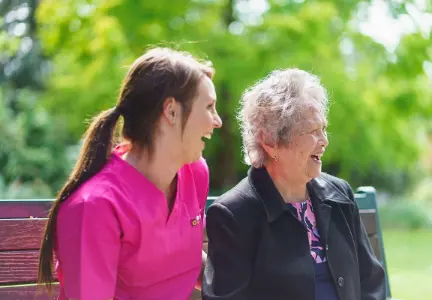3 Important steps to look after your mental health these holidays
"May you never be too grown up to search the skies on Christmas Eve."
While the holiday season is a time to relax and take a break from “work” (whatever form that takes), it is often a time when a parent’s anxiety and stress can kick into high gear. Your children are home from school and experiencing a mix of feelings from excitement to boredom. Your elderly parents have come to stay and you and your siblings are noticing the changes that mean you now need to when they return home. The list of “to do’s” seems to grow daily. Packing up and heading to family or friends creates a different yet equally lengthy list. Pack the presents, pack the children, sort out the pets, tidy up loose ends before heading off, prepare for living with your parents or siblings for two or more weeks. It is not surprising that the lead up to Christmas can leave busy adults feeling stressed and anxious.
help plan for care
The Shifting Set
A 2015 study conducted by Healthline reported that 62 percent of respondents reported increased levels of stress around the holiday season. Reasons cited included , as well as maintaining habits such as exercise which, like diet, plays a large role in stress management. Ellen Braaten, PhD and HMS associate professor of psychology at Massachusetts General Hospital refers to this as the ‘shifting set’. A shifting of cognitive skills required when there is a change in the environment.‘Shifting set’ is what psychologists refer to as an executive function - a cognitive function of your brain required to organise information and help you “get things done”. At any time of the year, your focus is required to maintain your usual activities: work, children, home, partner, and personal.
So what can you do to look after your mental health during the holiday season? We’ve explored the tips and tricks to help alleviate stress and come up with our top 3.When elderly parents and adult siblings come together, it is not uncommon for conflict and tension to rise. The normal stresses of navigating relationships apply and are fuelled at Christmas with alcohol consumption and heightened emotions. Planning ahead can help take the stress out of large family gatherings.
1. Plan Ahead

Organise a game of backyard cricketHave other games at handCreate the menu ahead of timeThink of ways to reduce the cleanup.
and include roles for elderly parents who’ve always loved getting involved but might not be able to participate physically this year. Perhaps they can be the “3rd umpire”, or coach? to keep kids and adults occupied while you’re busy preparing. and ask everyone to contribute. This will help ease the financial burden as well as ensuring you’re not responsible for the entire meal. Cold salads mean fewer pans to clean. Environmentally-friendly disposable crockery means fewer dishes to wash.
Task the children with clearing the Christmas wrappingsThere are so many ways to ensure you’re not responsible for every element of Christmas so be sure to work ahead and look for opportunities to let others help you.Be aware of your expectations and tolerant of others. 20 percent of participants in a 2016 survey by Relationships Australia said their relationships were negatively impacted by differing expectations around Christmas. Remember that ageing parents may have a different set of beliefs and behaviour to teenage and young children. In-laws may bring differing religious and cultural beliefs.
when presents are opened so you’re not left to face the mess once everyone’s gone.
2. Be Tolerant
Reframe how you and your family consider these differences. Look for opportunities to celebrate the rich diversity of your extended family and broaden your family’s traditions. The roles these extended family members play in your own family's life, especially the , can have an extremely positive impact if you let them.Mindfulness plays a large part in managing stress. If you are aware of you can take steps to redirect it back to where it is best spent.

3. Be Mindful
where your energy is directed
As we have discussed in our article "Being Mortal", your energy is not infinite. You probably already know how quickly you exhaust your energy levels. For most of us exhaustion kicks in around 3 or 4 pm, but even for those with greater energy resources, the Christmas period, and additional daily requirements will see your energy levels dropping sooner than normal. Small habits such as practising breathing can help you quickly reset your stress levels and allow your brain a moment to reframe the situation.

It's not unusual that spending a couple of weeks with elderly parents at Christmas will reveal the need for care. Mum might look frailer than you expected. Dad seems forgetful. If you are concerned about your parents' ability to care for themselves, consider whether this is a conversation you could have after everyone has gone home. Above all, look for moments to enjoy Christmas. While often a stressful time in the lead-up, most Australians agree that, when Christmas Day comes around, they are keen to relax and unwind with the family. Remember to find time to sit and enjoy the day. You deserve it.
From everyone at the Nurse Next Door family, have a very Merry Christmas. We wish you all the best for the New Year and hope you and your family find happiness and joy in the year ahead.




















